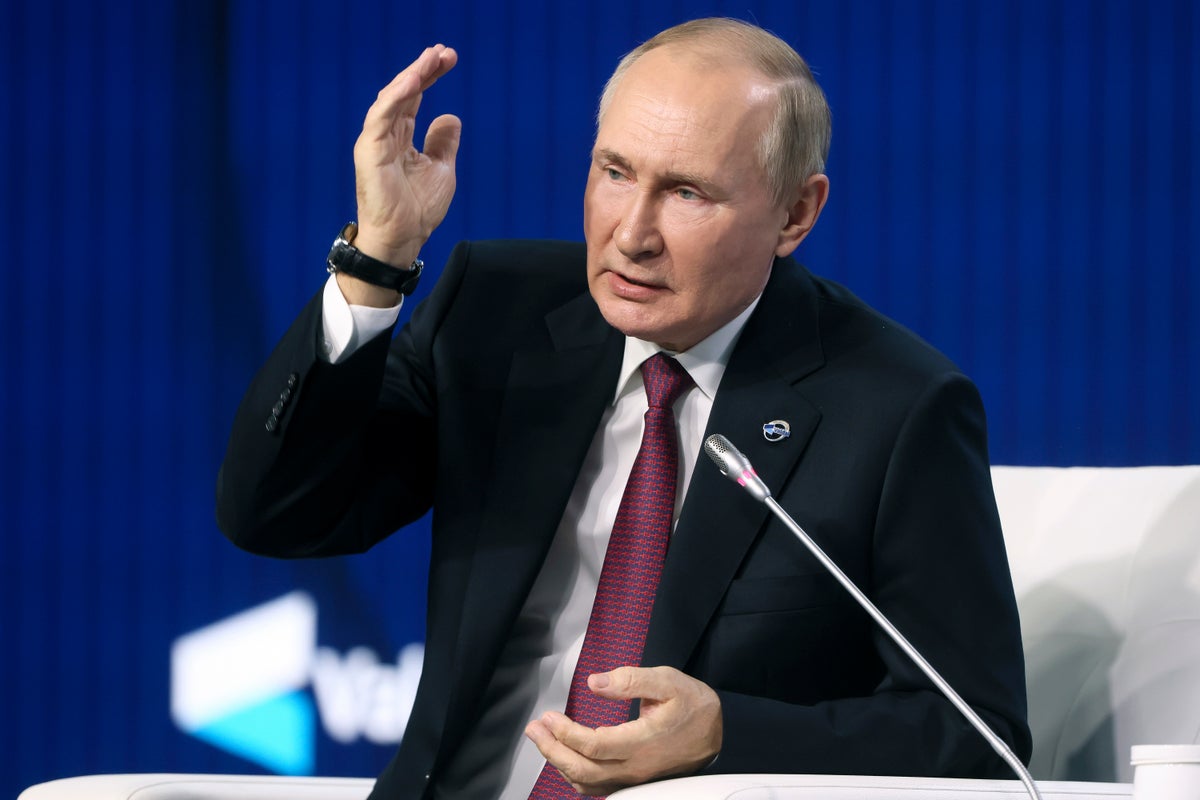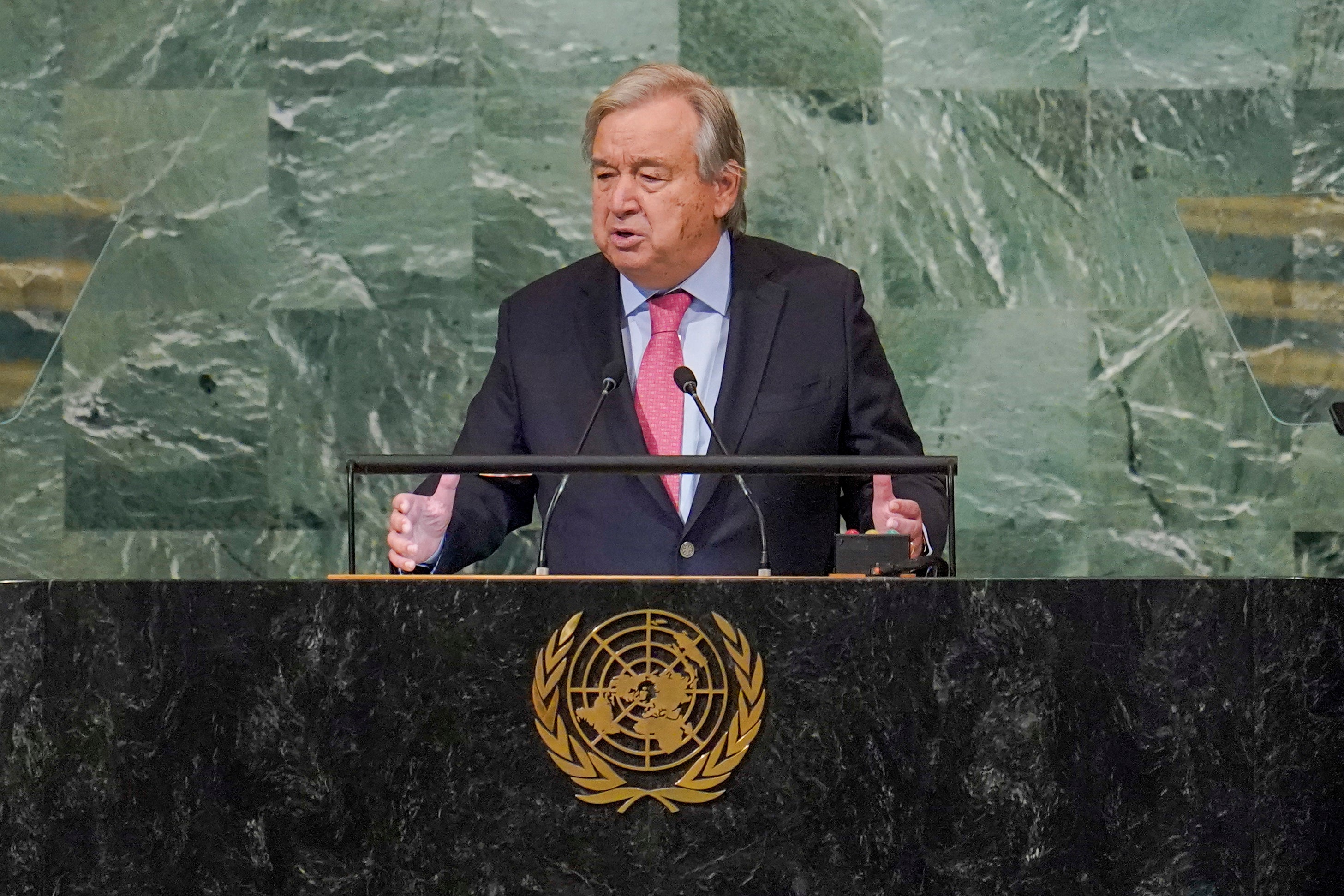
United Nations chief Antonio Guterres is scrambling to revive the Black Sea grain export deal aimed at easing a global food crisis, expressing “deep concern” over Russia’s unilateral suspension of the agreement with Ukraine.
Vladimir Putin’s regime wrote to Mr Guterres on Saturday to announce it was “indefinitely” halting its participation in the deal because it could not “guarantee safety of civilian ships” travelling under the pact, after accusing Ukraine of a major drone attack on its Black Sea fleet stationed in illegaly annexed Crimea.
The move will drastically cut shipments of grain from Ukraine, a nation frequently described as the “world’s breadbasket”, and global wheat prices were expected to soar on Monday in what Kyiv labelled Moscow’s “hunger games”.
Mr Guterres delayed his departure for the Arab League Summit in Algiers by a day and was engaging in “intense contacts aiming at the end of the Russian suspension of its participation”, the UN said on Sunday.
Ukraine warned that 218 vessels had been “effectively blocked” by Moscow’s decision, with president Voldymyr Zelensky claiming that the move threatened large-scale famine in Africa and Asia.
When the agreement was signed, the UN World Food Programme said some 47 million people were suffering “acute hunger” after Mr Putin’s war halted Ukrainian shipments, causing global food shortages and sending prices soaring.
The deal had ensured safe passage in and out of Odesa and two other Ukrainian ports in what an official called a “de facto ceasefire” for the ships and facilities covered. More than 9 million tonnes of corn, wheat, sunflower products, barley, rapeseed and soy were exported as a result.
Ukraine’s military claimed that Russia itself may have been responsible for the drone attack on Moscow’s fleet in Sevastopol on Saturday, with Kyiv’s foreign minister Dmytro Kuleba accusing Mr Putin of using the explosions some 137 miles away from the grain corridor as a “false pretext” for a long-intended move.
Turkey, which brokered the deal on 22 July alongside the UN, said its defence minister was in talks with Russian and Ukrainian counterparts to resume the agreement and had asked parties to avoid any “provocation”.
The Joint Coordination Centre – the body established by the UN, Turkey, Russia and Ukraine which coordinated the deal – said on Saturday night that it was “discussing next steps” in the wake of Moscow’s decision, with at least 10 ships awaiting entry to the humanitarian corridor.
The following night, it announced that the UN, Ukraine and Turkey had agreed on a plan to move 14 vessels currently in Turkish waters on Monday, and for inspections to be provided to 40 outbound ships – with Moscow’s delegation informed of the plans.
The grain deal had been due to expire on 19 November, ahead of which date Russia had repeatedly claimed to have serious problems with the agreement, while Mr Zelensky has accused Moscow of blocking some 175 ships in the corridor since September.
Mr Guterres, who had pushed for an extension beyond the expiry date, was also seeking on Sunday to achieve “the renewal and full implementation of the initiative to facilitate exports of food and fertiliser from Ukraine, as well as removing the remaining obstacles to the exports of Russian food and fertiliser”, the UN said.

Facing an increasing threat from Ukrainian counteroffensives, Mr Putin has increasingly resorted to Russian drone and missile attacks on Ukrainian infrastructure in recent weeks – which have destroyed more than 30 per cent of Ukraine’s energy capacity.
Kyiv often accuses Russia of using its Black Sea Fleet to fire cruise missiles at Ukrainian civilian targets, and some military analysts say this makes the fleet a legitimate military target.
In a remarkable accusation against a Nato member, Russia’s defence ministry claimed on Saturday that British Royal Navy “specialists” had helped to coordinate the attack on its fleet at Sevastopol – and of involvement in “terrorist attack” on the Nord Stream gas pipelines last month.
The UK’s Ministry of Defence called Russia’s allegations “false claims of an epic scale” intended to “detract from their disastrous handling of the illegal invasion of Ukraine”.
Moscow’s deputy UN ambassador Dmitry Polyansky said Russia had asked the UN Security Council to meet on Monday to discuss the Sevastopol attack, which Ukraine has neither confirmed nor denied responsibility for.
Mr Zelensky, meanwhile, called for a strong response from the UN and G20 to what he called Russia’s nonsensical move on the grain deal.
US president Joe Biden called Russia’s decision “purely outrageous” and warned it would increase starvation, while his secretary of state Antony Blinken accused Moscow of weaponising food.
“Any act by Russia to disrupt these critical grain exports is essentially a statement that people and families around the world should pay more for food or go hungry,” Mr Blinken said.
However, Russia’s ambassador retorted that Washington’s response to the “terrorist attack” on Sevastopol was “truly outrageous”, accusing the US of failing to condemn “reckless actions by the Kyiv regime” and of “disregarding” Moscow’s claims of British involvement.
Additional reporting by AP







